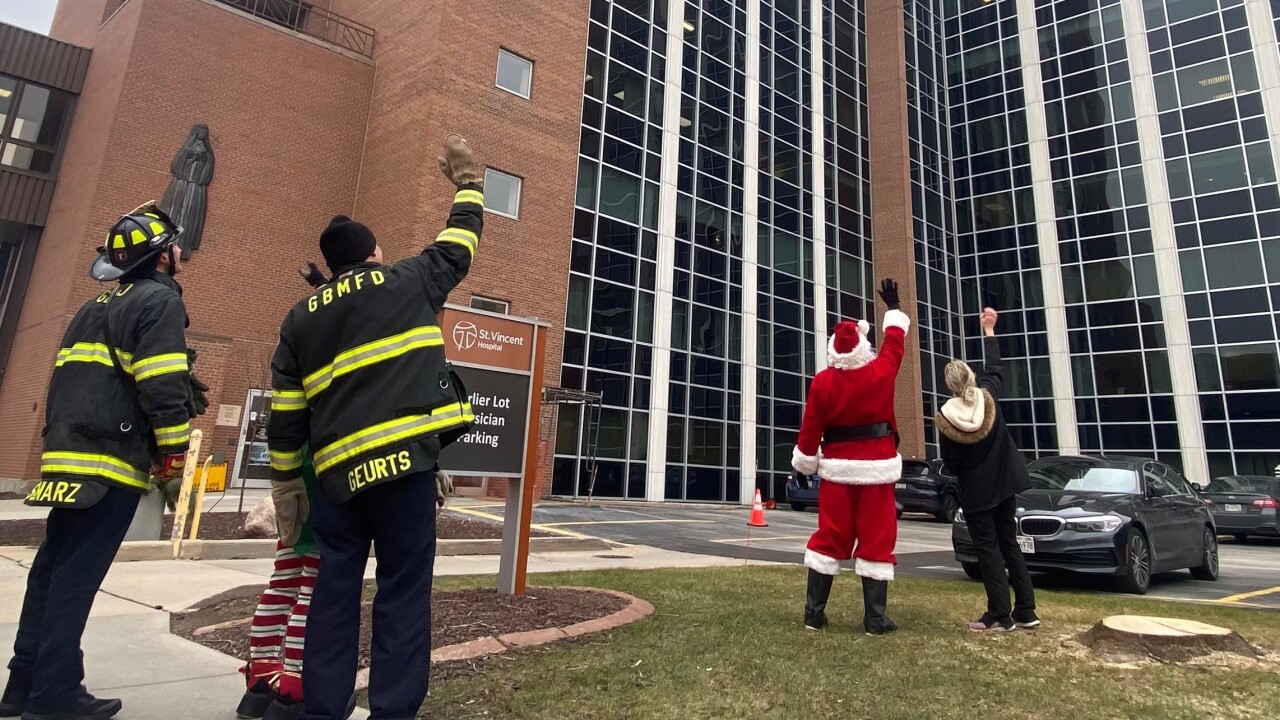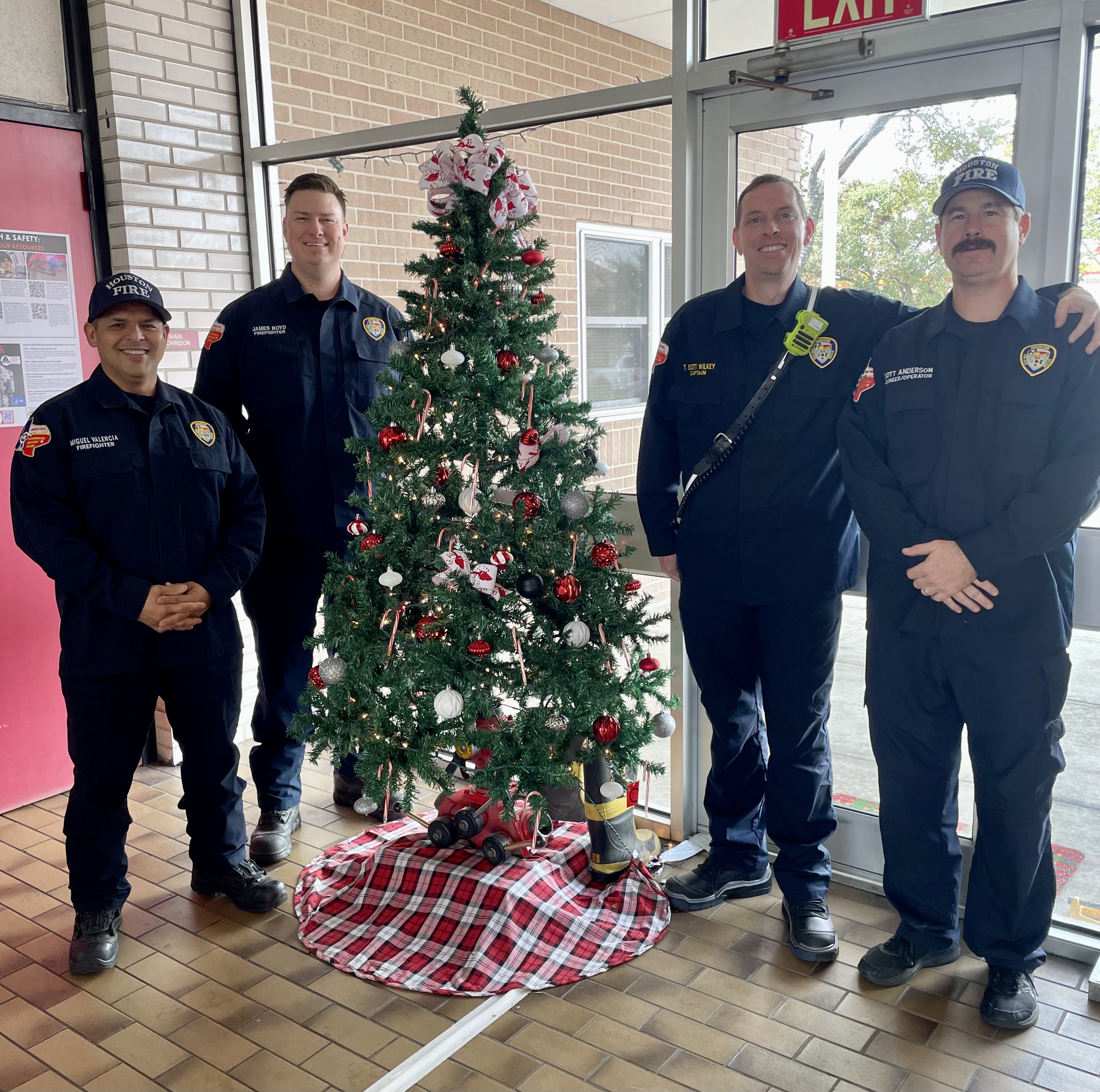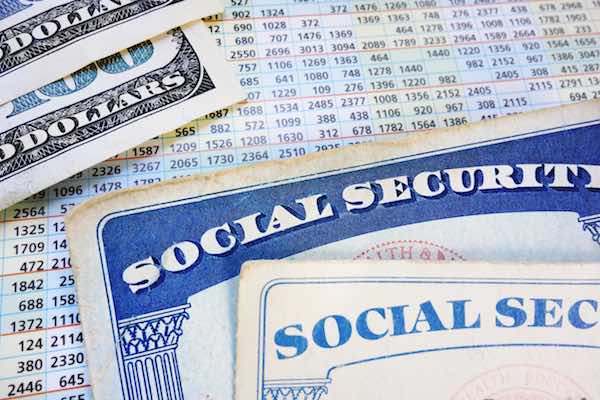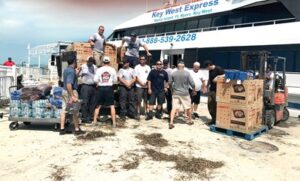
When it was done, more than 90 percent of the homes in the Florida Keys had been damaged, with 25 percent completely destroyed. Thousands of boats were sunk or wrecked. Up to 15 million in the state of Florida were without power — but those in the lower keys, the area hardest hit by Irma, were left without access to food, water and communication as the main highway was inaccessible.
The IAFF had been mapping the hurricane and working with local leaders in the storm’s path to identify areas that would be the most vulnerable. “It became clear very quickly right after the storm that the Keys needed some serious assistance,” says 12th District Vice President Walt Dix. “We had three major areas hit, Florida’s West coast, Jacksonville and the Keys — but access was a big problem for the Keys and we had to figure out a way to get supplies down there.”
Key West, FL Local 1424 President Omar Garcia says he began receiving phone calls from the IAFF even before the storm hit asking what he needed and how they were doing. After the storm had passed — Garcia and his members were left without a single mode of communication.
“Within days of the storm, I got word that some of our guys from Metro Dade Local 1403 and Miami Beach Local 1510 were looking for me,” says Garcia. “They had flown in with a satellite phone for us. That was the best gift we could have received at that time.”
Meanwhile, an IAFF disaster relief team had flown to Atlanta and was driving into the night to establish command operations at the Cape Coral Local 2424 union hall to coordinate with members of Metro Dade Local 1403.
“Immediately after the storm, 12th District Vice President Walt Dix was on the phone asking if we could run a command here,” says Local 2424 President Eric Chudzik. “I was humbled to be a part of this and so impressed with the IAFF and what we were able to accomplish in such a short amount of time — any hiccup we had, these guys just adjusted on the fly. It was incredible.”
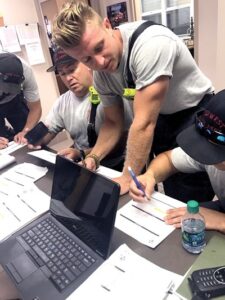
IAFF staff and Local 2424 member Steve Hernden headed out on his 28-foot boat loaded with chain saws, gas, food, water and a satellite phone. They reached the port of Key West about four hours later after navigating in the dark — past sunken boat masts and debris — and were met by the Coast Guard and eventually allowed to dock in Key West.
“It was a nightmare to be out on the water then, I know that,” says Garcia. “These guys were determined to get to us in our time of need, and I just don’t know any other organization — and I’m including FEMA — that would do something like this.”
IAFF staff, together with Key West members, began a command post to assist the Keys and to communicate back to disaster relief operations in Cape Coral and Metro Dade.
Once the needs assessment was complete, the biggest decision back at Cape Coral Local 2424 was how to get more supplies down to the Keys as fast as possible. The immediate need was for means of communication and water, in addition to vaccines and generators.
Local 2424 President Chudzik reached out to the owner of the Key West Express, a high-speed ferry from Ft. Meyers to Key West. The ferry owner was more than happy to work with the IAFF to send supplies to the Keys, and soon a boat was on its way with more generators, chainsaws, water, food, gas, vaccines, satellite phones and an IAFF Peer Support team from Phoenix.
General President Harold Schaitberger and General Secretary-Treasurer Edward Kelly arrived on the ground to help assess member needs and see the progress being made to assist members.
“A disaster like this is when our brothers and sisters perform in ways that truly define what it means to be a member of the IAFF,” says Schaitberger.
“I was so honored and touched that they both personally came down here and shook hands with our members,” says President Garcia. “It really impressed our local community — politicians, community leaders — that we were part of an organization that takes care of its members. Everyone was just blown away by the IAFF and what we were capable of at a time like this.”
For nearly two weeks, the IAFF disaster relief team met with members from Cudjoe Key to Marathon to Big Pine — all across Monroe County — to distribute financial relief, provide peer support, assess damages and administer vaccines.
“When you are hit with an event like Hurricane Irma, it has the ability to shake you to your core,” says Metro Dade Local 1403 President Blanco. “When the IAFF comes in and reaches out like they did, it reminds us of how incredibly lucky we are to be a part of such a brother and sisterhood. It gives you a renewed appreciation for what the IAFF is really all about.”
Fuel Relief Fund Comes to the Rescue in Aftermath of Hurricane Irma
As residents prepared to either weather Hurricane Irma at home or evacuate, gas stations throughout Florida and in some areas of Georgia faced major fuel shortages as fuel companies were unable to resupply stations even before the storm, leaving filling stations across the region empty.
As the IAFF disaster relief team arrived on the ground, gas was scarce as far north as the Florida/Georgia state line. Access to fuel would be one of the team’s biggest priorities in order to provide assistance to members impacted by the storm.
General Secretary-Treasurer Edward Kelly reached out to members of his home local — Boston, MA Local 718 members Joe Lee and Justin Castellanos — whose connection to the Fuel Relief Fund (FRF) proved invaluable. The FRF’s sole mission is to bring fuel to areas affected by natural and other major disasters.
“The desire to help others is at the core of every fire fighter — it’s who we are,” notes Kelly. “The Fuel Fund was a vital resource to our members in the disaster zone.”
12th District Vice President Walt Dix says, “The dedicated pumps are great, but we can’t use them if there’s no power,” he says. “Some places were without power for more than a week. The Fuel Relief Fund became critical.”
Local 718 members Lee and Castellanos met the IAFF disaster relief team and North Collier Local 2297 members at fire station 45 in the Naples area, where members could fill up fire apparatus and personal vehicles.
“After a hurricane, or any large-scale disaster, fuel is the link to getting communities and citizens back on their feet,” says Lee. “First responders, hospitals, water sanitization equipment and generators all need it to operate.”
“Joe and Justin have helped many people with this little known yet vital service. They are great fire fighters and dedicated to the IAFF’s goal of a quick, meaningful response,” says Local 718 President Rich Paris.
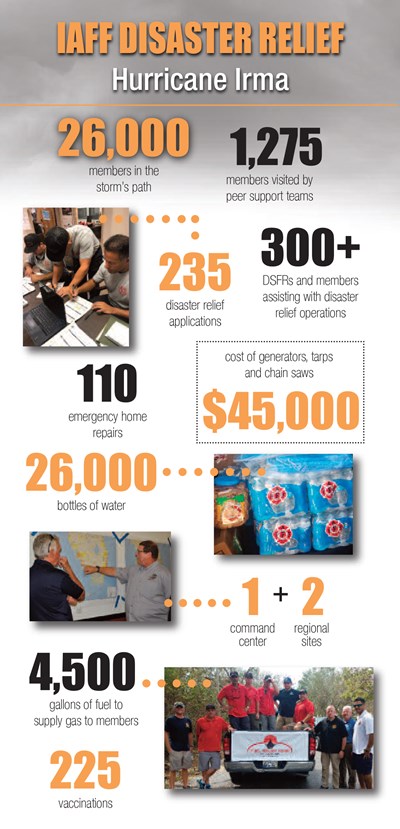
Working alongside the IAFF in the aftermath of Hurricane Irma was the Healing Emergency Aid Response Team or HEART 9/11, a team of first responders who formed the group after September 11, 2001, to “honor the sacrifices of brave colleagues and family members lost, to continue to utilize their experience and training in service to others and to bring a message of hope to communities affected by disaster.” HEART 9/11 is made up of active and retired members of the FDNY and NYPD, among others, who respond immediately to natural and man-made disasters.
HEART 9/11 members — many from New York City Locals 94 and 854 — were dispatched to Tampa, Naples and Key West and immediately began work rebuilding homes in the area. HEART 9/11 provides all of their own travel, food and lodging. The HEART 9/11 Hurricane Harvey Transport team had relocated the two tool/equipment trailers from Texas to the Florida Keys and met up with the arriving crew to begin demolition and home repair.
How You Can Help — Donate to the IAFF Disaster Relief Fund
We need your help to provide needed emergency funds to our Disaster Relief Fund. The assistance we provide our members whenever they are displaced from their homes, whether it’s from a hurricane, floods, wildfires, tornadoes — any kind of disaster — is possible through our Disaster Relief Fund, which is resourced for normal levels of these kinds of disasters. But we aren’t funded at a level to take on these multiple unprecedented consecutive events like Hurricanes Harvey and Irma and wildfires in California. We have to rely on contributions to make up the difference — and that’s where this IAFF needs your help by donating to the IAFF Disaster Relief Fund.
Send a check to:
IAFF Disaster Relief Fund
1750 New York Avenue, NW
Suite 300
Washington, DC 20006
Or make a donation by credit card online at www.iaff.org/disasterrelief.

